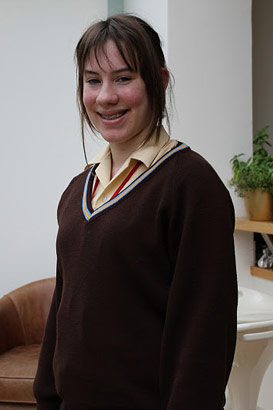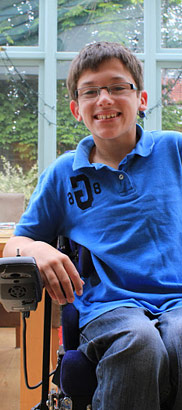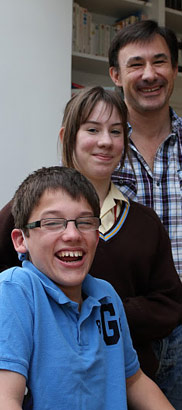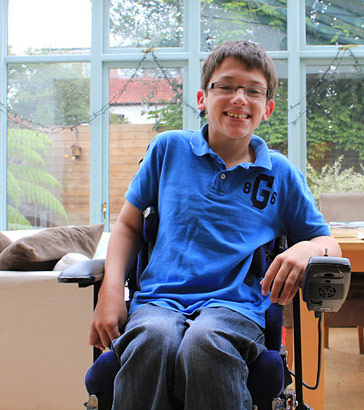
Beware of making generalisations and assumptions. Often professionals assume that families will be devastated by the news of their child's disability, but it is important to remember that some families will not. It is the child, not the disability, that should be uppermost in people's minds.
Two American writers, Philip Ferguson (a parent) and Adrienne Asch (who has a disability) offer this powerful thought:
The most important thing that happens when a child is born with disabilities
is that a child is born. The most important thing that happens when a couple become parents of a child with disabilities is
that the couple become parents.
Ferguson and Asch, 1989

When carrying out interviews with families as part of the First Impressions project, Jill Davies (Foundation for People with Learning Disabilities (2005)) was told by a mother who was delighted with the birth of her baby (who had Down syndrome): 'If someone had offered their commiserations I would have been very upset'.
Davies noted that some professionals find it difficult to accept such a stance, assuming that parents who do not show distress after the diagnosis are in a state of denial:
Every time I expressed my joy to the staff at the hospital, they said,
'She's denying reality'. I understood the reality of my child's situation but, for me, there was another reality.
Kearney and Griffin, 2001
Do professionals have real insights into how the birth of, and life with,
a child with a disability impacts on the family? At times, we may assume that we know what families need, but often we do
not understand the range of emotions experienced. In the recent past, professionals assumed that parents would want to distance
themselves from their child who has disabilities, and have based their advice upon this.
Carpenter, 2007
Peering into the crib of a child with a disability in the pre-dawn moonlight
can bring tears of truly unconditional love – love that will not be based on report card performance, scores as a star
quarter-back, or excellent performance as a respected trial lawyer. This love is for who this person is, for their qualities,
their trials, and for the inner strength they must develop to take their place. It is their struggle, we can only hope and
help, watch and love.
Meyer, 1995

While a family’s journey may follow a different route from that which they had anticipated before the birth of their child, their destination is the same as any other child. That is the fulfilment and celebration of their child’s potential.
My son, Will, has Cerebral Palsy and autistic tendencies. I have always
wanted to share my story, to tell the world about how hard and how wonderful it is having a child with special needs. My husband
and I dreamed of a child, yet we grieved, not celebrated, his death, which came before his birth. We suffered along with him
as he struggled to survive. When we were warned to not name him because he was not expected to live, we named him 'Will' for
will to live. Will is now living beyond expectation, but like his birth, is still struggling to survive. Because of his Cerebral
Palsy, he remains non-ambulatory, non-verbal, and has a feeding tube, which all present significant challenges for him and
for me, but he attends school, plays, laughs, and loves just like any other neurotypical seven-year old boy.
Jones, 2011

Families describe the positive impact that children with an intellectual disability have on their lives (Stainton and Besser, 1998).
- They are a source of joy and happiness.
- An increased sense of purpose and priorities.
- Expanded personal and social networks and community involvement.
- Increased spirituality.
- A source of family unity and closeness.
- Increased tolerance and understanding.
- Personal growth and strength.
- Positive impacts on others/community.
Carpenter, B. (2007) Family structures. In: Early Support (ed.) Working in Partnership through Early Support: Distance learning text. London: Early Support. [ Online at: http://dera.ioe.ac.uk/1926/1/family%20structures.pdf ]
Davies, J. (2005). First impressions: emotional and practical support for families of a young child with a learning disability. In Carpenter, B. and Egerton, J. (eds) Early Childhood Intervention: International perspectives, national initiatives and regional practice, Coventry: West Midlands SEN Regional Partnership.
Ferguson, P.M. and Asch, A. (1989) Lessons from life: personal and parental perspectives on school, childhood and disability, in: Biklen, D. Ferguson, D. and Ford, A. (eds) Schooling and Disability, Chicago: NSSE.
Foundation for People with Learning Disabilities (2005) First Impressions: Emotional and practical support for families of a young child with a learning disability. A guide for practitioners and service commissioners, London: Mental Health Foundation.
Jones, D.E. (2011) The Joyful Experiences of Mothers of Children with Special Needs: An Autoethnographic Study (Ph.D. Thesis). Muncie, IN: Ball State University.
Kearney, P. and Griffin, T. (2001) Between joy and sorrow: being a parent of a child with developmental disability. Journal of Advanced Nursing, 34, 582-592.
Meyer, D.J. (ed.) (1995) Uncommon Fathers: Reflections on raising a child with a disability, Bethesda, MD: Woodbine House.
Stainton, T. and Besser, H. (1998) The positive impact of children with an intellectual disability on the family, Journal of Intellectual and Developmental Disability, 23 (1), 57-70.
Wills, R. (1994) 'It is time to stop'. In: K. Ballard (ed.) Disability, Family, Whanau and Society. Palmerston North, NZ: Dunmore Press.